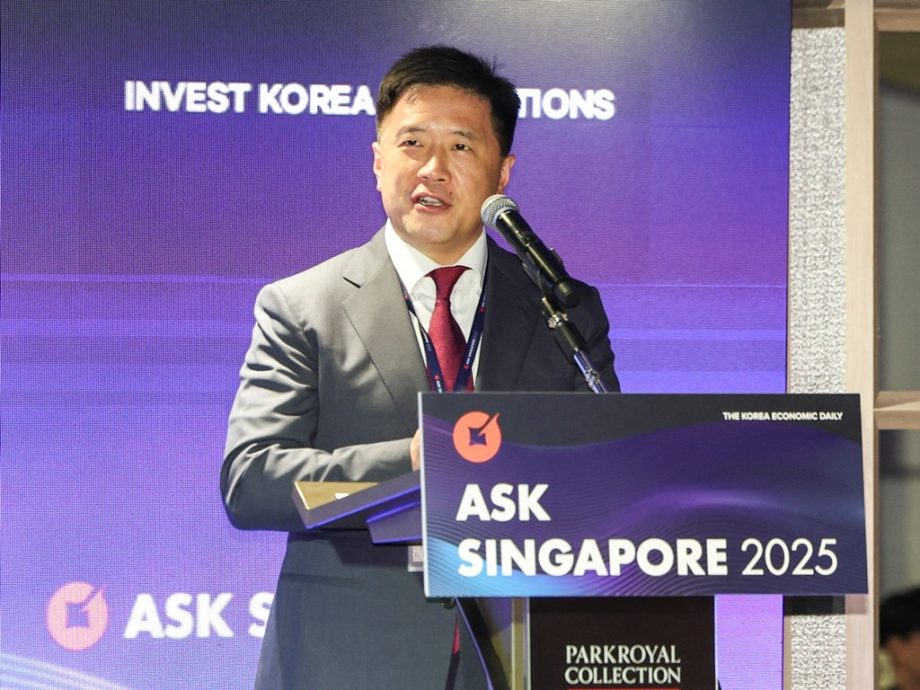SINGAPORE — Family offices in Singapore are growing more interested in investments in South Korea as Asia’s fourth-largest economy is expected to pick up, led by the robust semiconductor industry amid the global artificial intelligence boom, despite risks to US trade.
Asset managers in Singapore said the outlook for not only South Korean tech industries but also consumer sectors such as cosmetics is bright.
“Korea presents a great opportunity for family offices in Singapore seeking to diversify and grow their investment portfolios through innovation-led sectors and emerging consumer markets,” Sen Sui, CEO of Luminas Financial Pte Ltd, said in a keynote speech at ASK Singapore 2025 on Monday.
The Singapore-based fund management firm sees South Korea’s AI, healthcare and digital infrastructure as formidable growth engines, Sui said.
The Northeast Asian country’s rising consumer class presents unique opportunities for global family offices seeking diversified exposure, he added.
Kee Lock Chua, CEO of Vertex Holdings, a venture capital unit of Singapore state investor Temasek Holdings, said the city-state is home to more than 2000 family offices and could become a source of capital for South Korea’s innovation ecosystems.
About 200 investors and asset managers from Singapore and South Korea attended the first alternative investment conference held in the city-state hosted by The Korea Economic Daily.
SEMICONDUCTORS TO POWER ECONOMIC RECOVERY
The South Korean economy is predicted to expand 1.9% in 2026, about double the estimated 1% growth this year, thanks to a chip supercycle, Nomura Securities Co. said.
“Amid strong AI demand, data storage and conventional server demand are driving legacy chip demand,” said Nomura Chief Economist Jeong Woo Park for Korea and Taiwan.
“Chip companies have maintained capex discipline, which is constraining their chip capacity.”
South Korea is home to the world’s two largest memory chipmakers – Samsung Electronics Co. and SK Hynix Inc. Semiconductor exports increased 16.5% to $121.1 billion in the first nine months of the year from the same period of 2024, according to customs data.
Nomura’s economic outlook is more bullish than that of the Bank of Korea, which forecasts the economy would grow 0.9% this year and 1.6% in the next. The central bank saw that the impact of US tariffs is likely to increase.
Nomura expected strong AI demand to offset tariff shock, adding that the chip cycle upswing is predicted to ease financial conditions.






